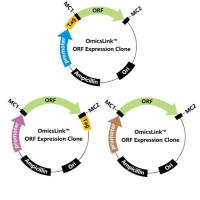Using 32-Cell Stage Xenopus Embryos to Probe PCP Signaling
互联网
互联网
相关产品推荐

Hemagglutinin/HA重组蛋白|Recombinant H1N1 (A/California/04/2009) HA-specific B cell probe (His Tag)
¥2570

Recombinant Human PCP4L1/人源PCP4L1蛋白
¥2100

Recombinant-Bacillus-subtilis-Oligopeptide-transport-system-permease-protein-oppCoppCOligopeptide transport system permease protein oppC Alternative name(s): Stage 0 sporulation protein KC
¥11494

NLRP5 Homo sapiens maternal-antigen-that-embryos-require protein (MATER) mRNA.
询价

CD32A/FCGR2A重组蛋白|Recombinant Human CD32a / FCGR2A Protein (167 His, His Tag)
¥2310
相关问答

